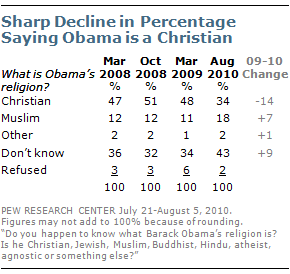War of the mind
In preparing recently for my major paper I came across some very interesting information. My paper was over the history of the role of psychology in relation to good and evil. I chose to drill it down a little deeper and look at the role of behaviorism and environment on the influence of evil. I read Dr. Philip Zimbardo’s book called the Lucifer Effect in which he discusses the intense role a situation can play on a seemingly “good” person to be able to produce “evil” acts. He discusses the American held prison in Iraq, Abu Ghraib, the genocide at Rwanda and so forth. He makes a very convincing argument that human beings tend to change their viewpoints on what is an evil act depending on the immediate situation that they are in.
 While reading Zimbardo’s book I thought to the Nuremberg trials in the late 1940’s where in the world court tried the executive branch of the Nazi military high command. At the time many of these men were claiming that they were simply following orders, so the goal of the prosecutors was to establish that the highest ranking members of Hitler’s Military cabinet had actually conspiratorially planed to expand war. German efficiency being what it was, the prosecutors found that the Germans kept written transcriptions on every meeting. Evidence showing that Hitler knew that the country’s biggest problem was that of real estate, and that if they were going to expand the German holdings that it would have to be done through war. He also speaks of knowing that the German people would need a common enemy to rally behind. The psychological warfare against the Jewish and Polish people begins. By dehumanizing his neighbors, imaginary, and passionate speeches Hitler slowly changed the mental mindset of his people into a weapon of hate. It could be argued that Hitler understood human behaviorism better than any other person alive up to that point. He shaped the mental image of an entire culture of people into a weapon of hate.
While reading Zimbardo’s book I thought to the Nuremberg trials in the late 1940’s where in the world court tried the executive branch of the Nazi military high command. At the time many of these men were claiming that they were simply following orders, so the goal of the prosecutors was to establish that the highest ranking members of Hitler’s Military cabinet had actually conspiratorially planed to expand war. German efficiency being what it was, the prosecutors found that the Germans kept written transcriptions on every meeting. Evidence showing that Hitler knew that the country’s biggest problem was that of real estate, and that if they were going to expand the German holdings that it would have to be done through war. He also speaks of knowing that the German people would need a common enemy to rally behind. The psychological warfare against the Jewish and Polish people begins. By dehumanizing his neighbors, imaginary, and passionate speeches Hitler slowly changed the mental mindset of his people into a weapon of hate. It could be argued that Hitler understood human behaviorism better than any other person alive up to that point. He shaped the mental image of an entire culture of people into a weapon of hate.





Bradley Campbell on Is Hogwarts a Mental Institution?
11:31 am, 11.22.10
Amy……My wife and I are also large Harry Potter fans. I really enjoyed your post, it is interesting how often we watch and read something and can easily fall into the fantasy as the reality. I never gave any thought that this could all just be a delusional coping fantasy that harry needed to survive. I have to say that I prefer the fantasy….and not the possible reality of Harry’s plight.
Bradley Campbell on I Choose Not to be a Racist
11:25 am, 11.22.10
Amy, this is a great post. I appreciate you linking the test. I took it as well and received the same diagnosis. However I wonder how much of this is simply attributed to what we recognize first vs. prefer.
Bradley Campbell on Subliminal Messages
11:21 am, 11.22.10
Rachel, great post. I worked in advertising for several years (at the local level) and it’s sad how much of a science it has become. In that world money is king. I really was fascinated by the two pictures above…I have never seen that before.
Bradley Campbell on "Brilliant Deduction Watson"
12:15 pm, 10.25.10
You have to remember the role of human rights during this time period. There was loud and convincing arguments in eugenics that certain people would always be slaves to their birth, meaning that if you had the inability to read then you were never meant to and thus never be able to posses the ability to read. The eugenics movement was a scary time where certain people had decided that if an individual was a moron then they really didn’t have to right to breed. I know that on the surface it would seem that Dr. Watson’s experiment was cruel, however he was trying to show that people respond more to their environment than their genetics. His experiment was actually born out of a response to fighting a widespread cruelty that was developing across the world.
Bradley Campbell on Conditioned Responses
12:08 pm, 10.25.10
In abnormal Psych we were talking about some of these same issues….except we sometime tend to focus on the negative conditioned responses like your dog being agitated towards towels and such. We were talking about OCD and how habits and compulsions work, Dr. Cassada explained that we all have routines, and some that are so deeply ingrained that it would feel really weird and even distressing to try and change those habits. For example, if you wear a lot of Oxford style button down shirts, then you probably put it on by buttoning it in the same sequence of buttons every time, and to do it another way would feel foreign and weird. So, we condition ourselves all the time to follow certain patterns the we all follow habitually.
Bradley Campbell on Mother of Behaviorism
11:29 am, 10.25.10
I am so glad that you did your post on this topic, When I was reading this last week about the work that Watson and Jones completed together I wanted to take a few minutes then and look into Jones a little more and never got the chance. I would like to dig a little deeper into the role that woman played in the history of Psychology. Great Job.
Bradley Campbell on Faith Based on Feelings
3:57 pm, 10.11.10
Mary, great post. I think you really touched on several of the thoughts that we had that day when we saw the video. We a really blessed to serve a God that ultimately is the author of everything about us. From the way we work biologically to how we perceive His influence in our lives. 1 Corinthians 12
Bradley Campbell on Keeping up with the Jetsons
3:52 pm, 10.11.10
I would gladly give over the ability to drive on long trips over to a computer. I long for the day that we can as a family unit take a road trip wherein we can read, sleep, or watch tv all the way to our destination. The odd thing about AI, is if all humans suddenly disappeared from the planet, and these programs that we designed were left behind, they would not be able to function without continued input from humans. Thus it would seem that there is no such thing as AI, just an extension of our own intelligence into a simulation. Like an intelligence simulator, still…..really interesting stuff!
Bradley Campbell on Bandura and his Bobo doll
3:44 pm, 10.11.10
These are some very interesting concepts that are laid out in relation to Bandura and His Bobo Doll. The only problem, like with most of psychology, is that even though these concepts make sense and would more than likely apply to most people it is not always the hard and fast rule. I have known some people that were exposed to extensive violence and multiple vulgarities on their youth who have made it a point to avoid that type of behavior and ultimately make a change to break the cycle of abuse in their home.
Bradley Campbell on Humor
1:30 pm, 10.04.10
I wonder how you get the job to grow up and tickle apes. It would seem that laughter might be defined as an ego defense mechanism due to the fact that there have been times in my life where I have tried not to laugh and couldn’t help it. There have also been times I have laughed until Iv’e cried and seemed to laugh harder the more I tried to stop myself. Even though we can laugh on command perhaps its just a fake kind of laughter like an allegory of a real laugh. Just like a social laugh that we produce when someone tells a joke that we really don’t find funny however we feel the need to avoid a social aqwardeness. A real laugh might be autonomic and thus can’t be helped or controlled.